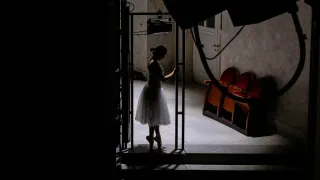June 29, 2015
Living Legacy: 25 Years of Manchester Pride, Part II
Kelsy Chauvin READ TIME: 6 MIN.
This is our second installment in our profile of Manchester and its 25-year legacy of LGBT pride. To learn more about this year's Manchester Pride, click here.
Everyday Pride
Manchester is a city so proud of its gay culture, naturally there's a bounty of LGBT goings-on outside of the official Pride festival. One of its biggest hits is Gaydio, the nonprofit radio station started in 2006. Contrary to what you might expect from a gay radio station, Gaydio is not huge on talking. "The beat of Gay U.K.," as its calls itself, focuses on music - dance music, fittingly. The station does host occasional talk-radio sessions, usually with LGBT officials and thought leaders (John Cameron Mitchell was a recent guest) or on relevant topics like safe sex or marriage equality.
"It's all about the gay perspective on life and the world," says Ian Wallace, Gaydio's business director. "And by being credible, we deliver an audience."
Gaydio's huge fan base isn't limited to Manchester's 88.4 FM. Its live online stream has regular listeners as far away as Australia, South Africa, Iran, China, and of course the United States. A nonprofit, the station also offers social-development programs that teach young, unemployed, transgendered, and other radio enthusiasts interviewing and broadcasting skills. Plus, at Pride's Big Weekend, Gaydio dives directly into the fray, with live broadcasts from its sponsored dance arena.
LGBT heritage is a huge point of pride in Manchester. After all, the former home of mathematician Alan Turing and performer Quentin Crisp, not to mention the Smiths and the original British Queer as Folk, give Mancs (as locals call themselves) something to brag about the world over.
As a visitor, that heritage becomes a living tour thanks to the Out in the Past Heritage Trail. Marked by mosaics of rainbow tiles embedded in the pavement, the trail marks key sites from LGBT history from the past two centuries.
Alan Turing's memorial inside Sackville Gardens stands out, his statue holding an apple meant to represent wisdom, as well as a reminder that a poisoned apple led to his death (most likely a suicide). The park also is home to the shining "Beacon of Hope" AIDS Memorial, erected in 1993, and the National Transgender Memorial, a 12-foot-high solid-wood statue carved on site in 2013.
Another exploration of Manchester's storied queer history is found at the impressive Manchester Central Library. The massive domed building on St. Peter's Square reopened after four years of renovations, introducing Archives+, a vast repository for the region's and local communities' history.
That includes its LGBT history. Archives+ takes an active role to make its collection known to the community, including hosting February LGBT history month events and librarian-led lessons on historical research. Last summer the department appointed 23-year-old Bryony Bates as its writer-in-residence and recipient of the Young Enigma Allan Horsfall Prize for LGBT+ Young Writers. She's currently at work on a play about queer women, along with a personal, family-oriented essay project.
"Manchester has a thriving arts scene. It's really a nurturing place to be," Bates says. "Archives+ underscores how important LGBT history is to this city, and gives people another way to learn and access history."
Today's Gays
Investing in the present is also a big part of the Manchester queer community. To that end, organizations such as the LGBT Foundation provide a safe space and vital services to those in need, including a national helpline, sexual testing and support, free mental-health and well-being services, legal aid, support groups, and advice for tackling LGBT hate crime and discrimination. It also organizes the pink-vested Village Angels volunteers, a group that walks the street for help and safety.
The Joyce Layland LGBT Centre, located within the University of Manchester's sprawling campus, is another grassroots organization that welcomes gays and friends to its safe, welcoming environment.
Continuing down the university's main bustling boulevard known as Oxford Road, a curious building beckons from a small side street. It is Contact, one of the city's most daring arts outfits, housed in a huge, multilevel structure that could be either an experimental industrial complex or mega-sized microchip. The eye-catching edifice was part of Contact's 1999 initial investment, which included a redesign of the building that now houses an auditorium, smaller theater and cabaret spaces, caf�, and performance studios.
Contact is a richly programmed, open-minded emporium of the arts, with a focus on performance. For February's LGBT history month, Queer Contact hosts 10 days of comedy, discussions, spoken word, dance parties, and other theater, along with the occasional opera.
"It's a melting pot of young talent from many local communities," says Barry Priest, marketing and programming officer. "And it's very much home to a breadth of talent from all over the world."
Still further down Oxford Road is the Whitworth Gallery, which is not gay per se but nevertheless a worthy diversion from the city center. After a massive renovation to this marvelously ornate 1908 building, the Whitworth is a renowned local art museum, exhibiting notable collections of watercolors, sculptures, wallpapers, and textiles, both historic and contemporary.
Manchester Proper
The Gay Village may consume a lot of the average EDGE reader's time in Manchester, considering its impressive assortment of places to socialize. Bars like Velvet, the Molly House, New York New York , and lesbian bar Vanilla are circuit staples. Weekly and monthly parties like Poptastic at Alter Ego and Aftershock at Cruz 101 will also dole out more than any club's fair share of scantily clad cuties and dolled-up drag queens (sometimes as hosts, sometimes as guests).
There's also plenty to see beyond the Village, starting with the artsy-seedy-hipster wonderland called the Northern Quarter. Occupying the district north of Piccadilly Station, the quarter is where the cool kids hang. Head here for serious shopping along Thomas, Tib and Oldham Streets, and don't miss a visit to Afflecks , a three-story mishmash of funky shops that feels a little like stepping into the 1990s, with newer fashions.
This being England, there's one thing you really shouldn't miss: tea. There are two excellent choices - so good they may both be worth a sip. Head to the stunning Manchester Cathedral to view the city's regal Church of England, then step outside its heavy doors for a cup at Proper Tea. If you're not a regular tea drinker, the lovely servers will be sure to set you up, well, properly.
For something a little gayer - always an option in Manchester - try the Village's Richmond Tea Room. It's outfitted with eccentric Tim Burton-esque d�cor that suits its teatime persona and its evening cocktail-lounge vibe.
Much like the City of Manchester, Richmond Tea Room is a lively and charming haven for a measure of tradition, as well as a strong dose of whimsy. It's that affable nature that wins over visitors from far and wide, and lends this city a legacy of which to be proud.






